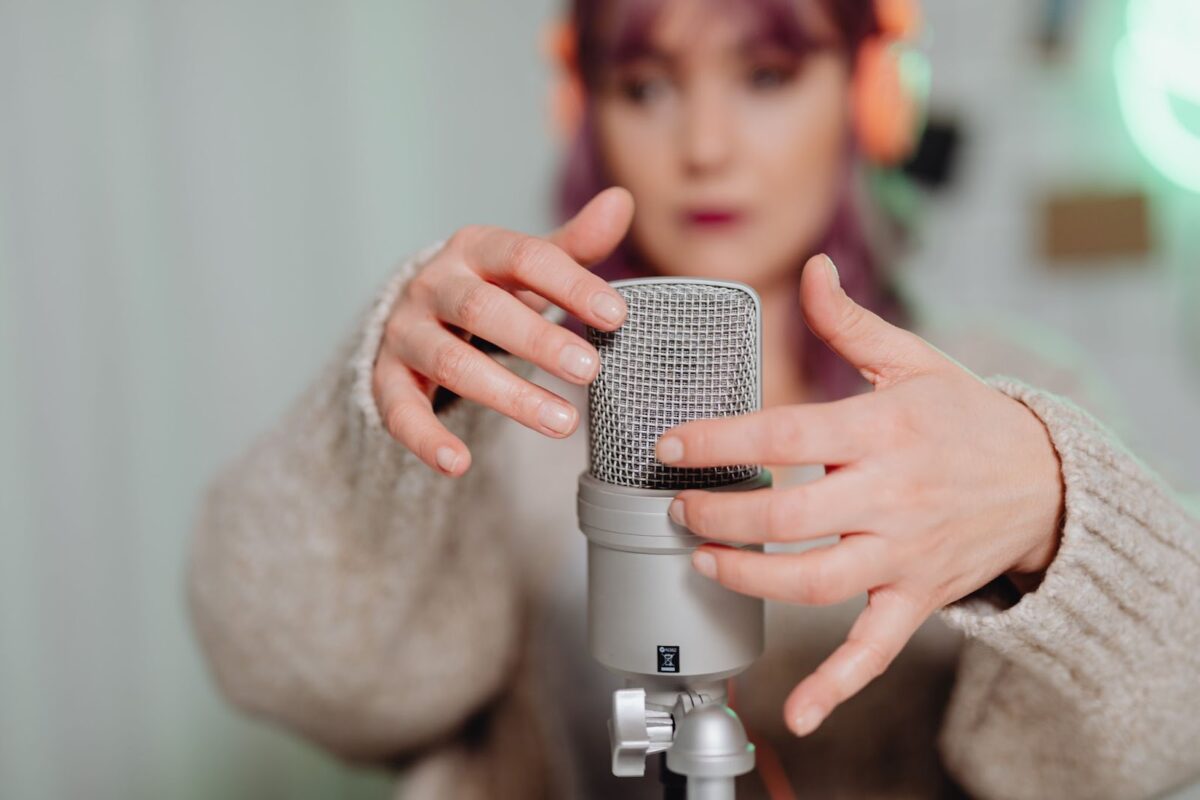As someone who has struggled with sleep issues, I have always been on the lookout for new things to help me get a good night’s rest. Something that has grown popular in recent years is the use of ASMR for sleep.
ASMR stands for Autonomous Sensory Meridian Response and is often used to help you relax. But does it really work?
In this article, we will explore what ASMR is, how it affects the brain, whether it truly helps with sleep, the best ASMR triggers for sleep, and the potential positive and negative effects of ASMR.
Let’s get started!
What is ASMR?
ASMR (Autonomous Sensory Meridian Response) refers to a tingling sensation that some individuals experience in response to specific auditory or visual stimuli.
These stimuli are often in the form of whispering, tapping, or gentle sounds, although they can also include visual triggers such as watching someone perform a task with great attention to detail.
People who experience ASMR often describe it as a pleasurable sensation that starts from the scalp and travels down the back of the neck and spine.
While ASMR has gained popularity in recent years, scientific research on the topic is still limited. However, some studies suggest that ASMR has therapeutic benefits for mental and physical health.
This could explain why some individuals find ASMR relaxing and enjoyable.
What does ASMR do to the brain?
When we experience ASMR, certain areas of the brain can be activated, leading to the release of neurotransmitters such as dopamine and serotonin.
These neurotransmitters are associated with feelings of relaxation and mood improvement.
Additionally, ASMR has been found to reduce levels of the stress hormone cortisol, which can contribute to a sense of mindfulness and well-being.
This suggests that ASMR may have a physiological impact on the brain, helping to quiet the mind and prepare the body for sleep.
Does ASMR help you sleep?

Source: Pexels
While there is anecdotal evidence suggesting that ASMR can help with sleep by relaxing the body, promoting elevated mood and reducing anxiety, scientific research on the topic is still in its early stages.
It’s important to note that not everyone responds to ASMR in the same way.
Some individuals find it incredibly relaxing and helpful for sleep, while others may not experience any effects at all. If you’re considering using ASMR to aid with sleep, it’s worth giving it a try to see how your body and mind respond.
What is the best ASMR for sleep?
The best ASMR triggers for sleep can vary from person to person. Some individuals find soft whispering or gentle tapping sounds to be particularly soothing, while others may prefer the sound of rain or waves.
Experimenting with different ASMR videos or audio tracks can help you discover what works best for you.
In general, ASMR videos that focus on relaxation and calming activities tend to be more effective for sleep. These may include videos of someone softly speaking or performing repetitive tasks, such as folding laundry or organizing objects.
Positive and Negative Effects
While ASMR can be a helpful tool for relaxation and sleep, it’s important to be aware of potential positive and negative effects.
On the positive side, ASMR has been reported to reduce stress and anxiety, promote a sense of well-being, and improve sleep quality for some individuals.
However, some people may find that ASMR triggers unwanted sensations or discomfort.
It’s important to listen to your body and mind and discontinue any ASMR content that doesn’t feel right for you.
Additionally, excessive use of ASMR or relying solely on it for sleep may lead to dependency or habituation, where the effects become less potent over time.
FAQ
Does ASMR actually help sleep?
While there is limited scientific research on ASMR and sleep, anecdotal evidence suggests that it can help some individuals improve sleep quality.
However, it’s important to note that ASMR affects people differently, and what works for one person may not work for another.
Is it OK to listen to ASMR while sleeping?
Listening to ASMR while sleeping is generally safe, but it’s important to use caution.
Make sure the volume is at a comfortable level and avoid using headphones that may be uncomfortable during sleep. If you find that ASMR is disrupting your sleep or causing any negative effects, it may be best to discontinue using it while sleeping.
Is it OK to watch ASMR everyday?
There is no harm in watching ASMR videos or listening to ASMR audio tracks every day, as long as it doesn’t interfere with your daily functioning or sleep patterns. However, it’s important to be mindful of your usage and listen to your body.
If you find that ASMR is becoming a distraction or causing any negative effects, it may be helpful to take breaks or limit your exposure.
How effective is ASMR?
The effectiveness of ASMR varies from person to person. While some individuals find it incredibly effective for relaxation and sleep, others may not experience any noticeable effects. It’s best to give ASMR a try and see how your body and mind respond to it.
Remember, ASMR is not a guaranteed solution for sleep issues, but it may be worth exploring as a natural and non-pharmaceutical option.
Disclaimer: The information provided in this article is for informational purposes only and is not intended to substitute for professional medical advice, diagnosis, or treatment.



